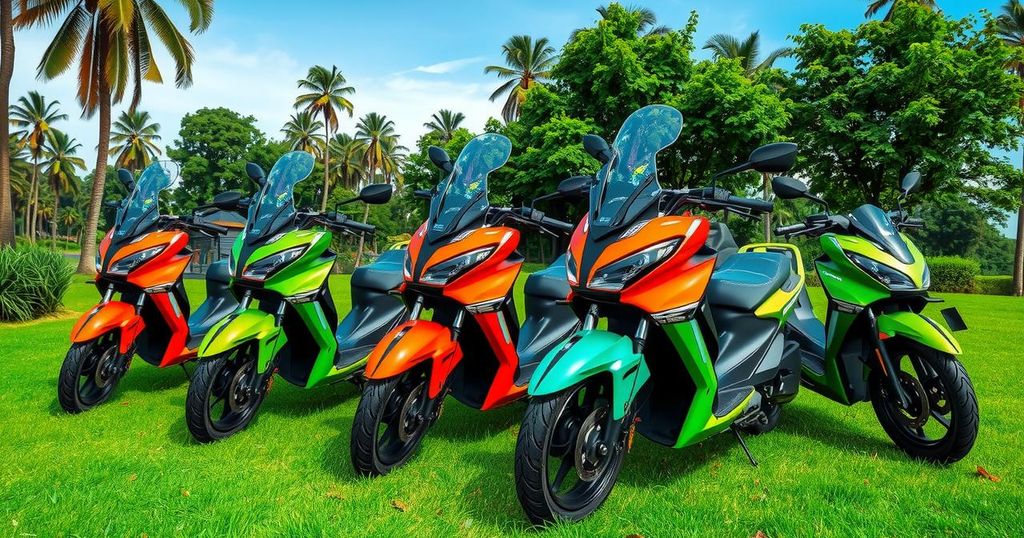Bee Group Unveils Transformative Electric Motorcycle Initiative in Cameroon
Bee Group is launching a million-dollar electric mobility project in Cameroon, introducing 40 electric motorcycles and charging stations. The initiative aims to reduce costs, alleviate pollution, and enhance urban transport. Supported by the Cameroonian government, the project will facilitate local job creation and technology transfer, with plans for future expansion across Africa.
Bee Group is embarking on a transformative electric mobility project in Cameroon, featuring an investment of RM4.5 million (CFA610 million) in collaboration with Chinese manufacturer Tembo Electronical Technology. This project introduces 40 electric motorcycles and associated charging stations, targeting cost reduction, pollution mitigation, and the enhancement of sustainable transport options. The pilot phase is set to commence in July 2025.
As part of the pilot phase slated for June 2025, Bee Group will deploy 40 electric motorcycles across key cities including Douala, Yaoundé, Bertoua, and Bafoussam, allocating 10 units per city. Each motorcycle will utilize four batteries—two operational while the other two recharge at strategically placed stations within TotalEnergies and Ola Energy facilities. Each charging station will accommodate 12 batteries, ensuring adequate energy availability.
Following the pilot phase, Bee Group anticipates the importation of an additional 100 motorcycles and plans to initiate local production by 2026. This strategic move is expected to foster local employment, curtail import expenses, and facilitate technology transfer to Cameroon. CEO Patrick Timani expressed the initiative’s intent to stimulate economic advancement and position Cameroon as a leader in electric mobility within Africa.
The initiative receives robust support from the Cameroonian government, alongside partnerships with 3S Motors and TotalEnergies. The 2025 finance law benefits electric vehicles with a 12.5% excise duty exemption, while new motorcycles, batteries, and charging stations enjoy a 50% tax reduction for the next two years. These financial incentives significantly enhance the viability of electric vehicle adoption and encourage sustainable transportation solutions.
In addition to financial benefits, the project aims to alleviate transport costs for commuters and decrease pollution levels. Notably, in Douala, where mototaxis represent 61% of all trips, these changes are anticipated to greatly enhance urban mobility. Bee Group is committed to facilitating a sustainable shift in urban transport, thereby diminishing dependence on fossil fuels and generating new economic opportunities for local riders.
Upon successful implementation in Cameroon, Bee Group intends to extend the electric mobility project to other African countries. By integrating innovation with job creation and environmental stewardship, this initiative signifies a decisive stride toward establishing a more sustainable and economical urban transport network across Africa.
Bee Group’s electric mobility initiative in Cameroon represents a significant investment in sustainable transport, aiming to reduce costs and pollution while enhancing urban mobility. The collaboration with Tembo Electronical Technology and the support from the Cameroonian government highlight the project’s comprehensive approach to fostering economic growth and establishing local production. As the project expands across Africa, it stands as a testament to the potential for innovative solutions to address transportation challenges.
Original Source: news.imotorbike.com




Post Comment